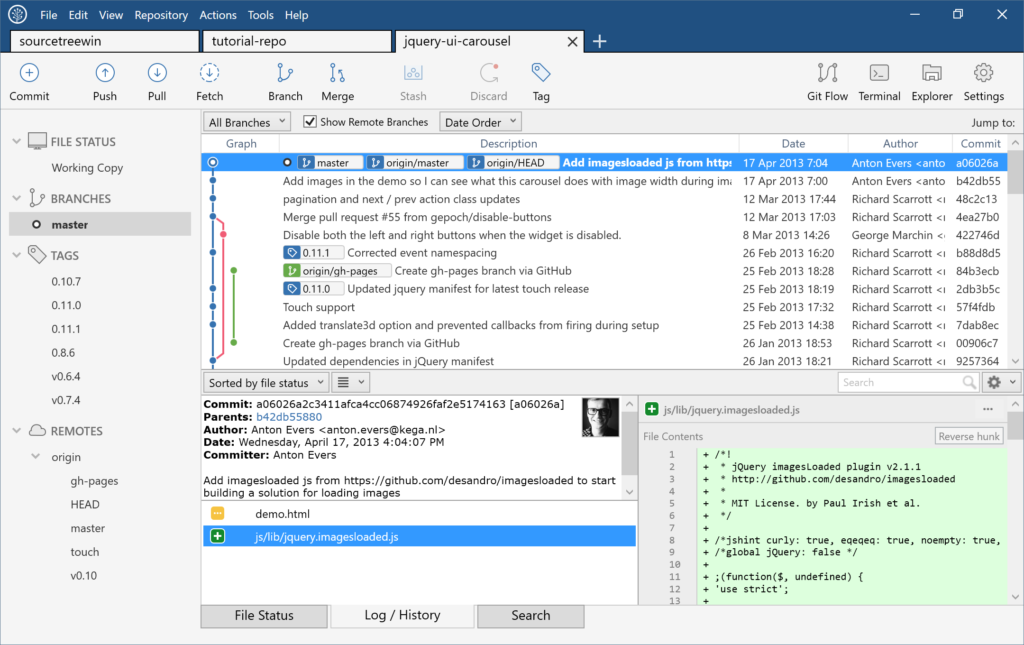
Clone: Creating a copy of the remote repository on your local machine.

In most situations, you work with local repositories before contributing the changes to the remote repository. We often differentiate between “remote repositories” which lives on Github and “local repositories” which are copies (or clones) of the remote repository that live on local machines. Think a folder, but with special settings and features.
#CONNECT GITKRAKEN TO GITHUB SOFTWARE#
(You of course can either give a set of users permission to make edits without you approving them, or you can disapprove a specific edit if you don’t agree.) Git and other version control started with open source software which thrive in public environments. On Github, the default for repos is Public, that is, anyone can see them and anyone can ask you to accept their edits. However, using Github (or the others) allows you store this on a server so that you can access anywhere or share. You can use Git without ever using an online host like Github you would still get the benefits of saved backups and a log of your changes. Your email exists in the absence of Gmail, but using Gmail for your email provides numerous benefits.


Github and others (Bitbucket, Gitlab) are online hosts for your git project.


 0 kommentar(er)
0 kommentar(er)
